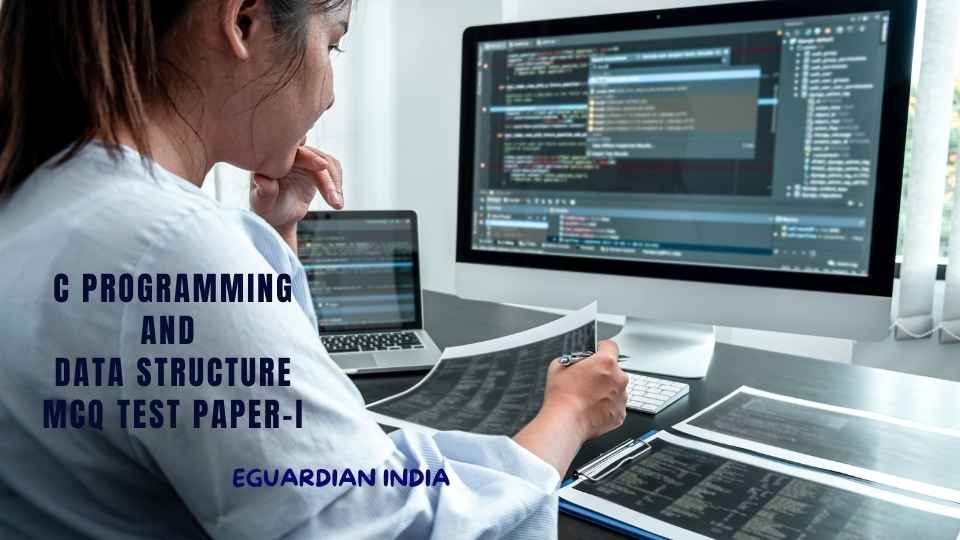Robotics is a fascinating and interdisciplinary field combining engineering, artificial intelligence, computer science, and mechanics to create machines that perform various tasks. If you’re preparing for a robotics exam, exploring the basics, or simply testing your understanding of this advanced technology, these 50 Robotics Questions and Answers are a perfect way to enhance your knowledge.
This blog post includes 50 multiple-choice questions (MCQs) with three options each, covering fundamental and advanced concepts in robotics. Let’s dive in!

Top 50 Robotics Questions and Answers for Beginners and Experts
1. What is a robot?
(a) A mechanical device that performs tasks autonomously
(b) A software application for data processing
(c) A device used only in manufacturing
Answer: (a) A mechanical device that performs tasks autonomously
2. Which branch of engineering focuses on robotics?
(a) Civil engineering
(b) Mechatronics
(c) Chemical engineering
Answer: (b) Mechatronics
3. What does “DOF” stand for in robotics?
(a) Degrees of Force
(b) Degrees of Freedom
(c) Direction of Flow
Answer: (b) Degrees of Freedom
4. Which component acts as the “brain” of a robot?
(a) Actuator
(b) Sensor
(c) Microcontroller
Answer: (c) Microcontroller
5. What is the primary function of a robot’s sensor?
(a) To process data
(b) To gather environmental information
(c) To power the robot
Answer: (b) To gather environmental information
6. What is the term for a robot mimicking human movements?
(a) Teleoperation
(b) Humanoid robotics
(c) Automation
Answer: (b) Humanoid robotics
7. Which programming language is most popular in robotics?
(a) Python
(b) JavaScript
(c) PHP
Answer: (a) Python
8. What is an actuator?
(a) A mechanical device that enables motion
(b) A software tool for simulation
(c) A system that processes electrical signals
Answer: (a) A mechanical device that enables motion
9. What does AI stand for in robotics?
(a) Automated Integration
(b) Artificial Intelligence
(c) Advanced Instrumentation
Answer: (b) Artificial Intelligence
10. Which type of robot is used in space exploration?
(a) Industrial robot
(b) Autonomous robot
(c) Mobile robot
Answer: (b) Autonomous robot
11. What is the full form of ROS in robotics?
(a) Robotic Operating System
(b) Reactive Operating Software
(c) Robotic Optimization System
Answer: (a) Robotic Operating System
12. Which robot part allows it to move?
(a) Controller
(b) Actuator
(c) Power supply
Answer: (b) Actuator
13. What is the main goal of a manipulator in a robot?
(a) To process data
(b) To interact with objects
(c) To sense environmental changes
Answer: (b) To interact with objects
14. What is kinematics in robotics?
(a) Study of motion without considering forces
(b) Study of electrical signals
(c) Study of robot sensors
Answer: (a) Study of motion without considering forces
15. What is the role of a robot’s end effector?
(a) Movement control
(b) Task execution
(c) Signal processing
Answer: (b) Task execution
16. Which robot is used in the automotive industry?
(a) Humanoid robot
(b) Industrial robot
(c) Military robot
Answer: (b) Industrial robot
17. What does “autonomous robot” mean?
(a) A robot controlled remotely
(b) A robot that operates independently
(c) A robot limited to repetitive tasks
Answer: (b) A robot that operates independently
18. Which type of robot is controlled by a human?
(a) Autonomous robot
(b) Teleoperated robot
(c) Industrial robot
Answer: (b) Teleoperated robot
19. What is a gripper in robotics?
(a) A robotic hand for holding objects
(b) A motion sensor
(c) A power source
Answer: (a) A robotic hand for holding objects
20. What is the primary application of swarm robotics?
(a) Military operations
(b) Coordination of multiple robots
(c) Manufacturing
Answer: (b) Coordination of multiple robots
21. What is the function of a robot’s controller?
(a) To process information and control the robot’s actions
(b) To provide power to the robot
(c) To sense environmental changes
Answer: (a) To process information and control the robot’s actions
22. What is inverse kinematics in robotics?
(a) Calculating the end-effector’s position from joint angles
(b) Calculating joint angles to reach a specific position
(c) Study of robot sensors
Answer: (b) Calculating joint angles to reach a specific position
23. Which of these is a type of locomotion for robots?
(a) Rolling
(b) Flying
(c) Both (a) and (b)
Answer: (c) Both (a) and (b)
24. What is a robot’s workspace?
(a) The robot’s storage area
(b) The volume within which the robot can operate
(c) The software used to program the robot
Answer: (b) The volume within which the robot can operate
25. What is a robot manipulator?
(a) A device for signal processing
(b) A robotic arm used for movement and control
(c) A power source for robots
Answer: (b) A robotic arm used for movement and control
26. What is the role of a gyroscope in robotics?
(a) To detect changes in position or orientation
(b) To power the robot
(c) To control the robot’s software
Answer: (a) To detect changes in position or orientation
27. Which industry widely uses surgical robots?
(a) Automotive industry
(b) Healthcare industry
(c) Aerospace industry
Answer: (b) Healthcare industry
28. What is the main advantage of a humanoid robot?
(a) High-speed manufacturing
(b) Ability to mimic human movements and interact naturally
(c) Reduced cost of production
Answer: (b) Ability to mimic human movements and interact naturally
29. Which sensor is used to measure distance in robots?
(a) Infrared sensor
(b) Gyroscope
(c) Pressure sensor
Answer: (a) Infrared sensor
30. What does SLAM stand for in robotics?
(a) Simultaneous Localization and Mapping
(b) Smart Linear Actuation Mechanism
(c) Simple Logical Algorithm Mapping
Answer: (a) Simultaneous Localization and Mapping
31. What is the purpose of machine learning in robotics?
(a) To reduce battery consumption
(b) To enable robots to learn from data and improve performance
(c) To simplify hardware design
Answer: (b) To enable robots to learn from data and improve performance
32. What type of robot is commonly used for bomb disposal?
(a) Mobile robot
(b) Humanoid robot
(c) Teleoperated robot
Answer: (c) Teleoperated robot
33. What is the main function of a proximity sensor in robotics?
(a) To measure speed
(b) To detect the presence of objects nearby
(c) To track the robot’s position
Answer: (b) To detect the presence of objects nearby
34. Which robot is used for underwater exploration?
(a) Autonomous Underwater Vehicle (AUV)
(b) Humanoid robot
(c) Industrial robot
Answer: (a) Autonomous Underwater Vehicle (AUV)
35. What is the purpose of end-of-arm tooling in robots?
(a) To detect objects
(b) To perform tasks like gripping, welding, or painting
(c) To provide movement to the robot
Answer: (b) To perform tasks like gripping, welding, or painting
36. Which algorithm is commonly used for path planning in robotics?
(a) Dijkstra’s algorithm
(b) Newton’s method
(c) Euclidean algorithm
Answer: (a) Dijkstra’s algorithm
37. Which of the following is a type of robot joint?
(a) Prismatic joint
(b) Rotary joint
(c) Both (a) and (b)
Answer: (c) Both (a) and (b)
38. What is an exoskeleton robot?
(a) A robot used for manufacturing
(b) A wearable robotic device for physical assistance
(c) A robot designed for entertainment
Answer: (b) A wearable robotic device for physical assistance
39. What is the role of feedback in a robot control system?
(a) To enhance the robot’s power supply
(b) To provide data for improving the robot’s performance
(c) To detect mechanical failures
Answer: (b) To provide data for improving the robot’s performance
40. Which law governs robotic motion in factories?
(a) Ohm’s Law
(b) Newton’s Laws of Motion
(c) Laws of Robotics by Isaac Asimov
Answer: (c) Laws of Robotics by Isaac Asimov
41. What is a swarm robot?
(a) A single robot working in isolation
(b) A group of robots working collectively to achieve a task
(c) A robot used for educational purposes
Answer: (b) A group of robots working collectively to achieve a task
42. What is the main challenge in robot vision?
(a) High-speed motion
(b) Image processing and object recognition
(c) Balancing the robot
Answer: (b) Image processing and object recognition
43. Which motor is commonly used in robots for precise control?
(a) DC motor
(b) Stepper motor
(c) Diesel motor
Answer: (b) Stepper motor
44. What is the primary purpose of a LiDAR sensor in robots?
(a) To measure distance using laser beams
(b) To detect temperature
(c) To control robot speed
Answer: (a) To measure distance using laser beams
45. What is a cobot?
(a) A collaborative robot that works alongside humans
(b) A robot used for construction
(c) A robot that operates autonomously
Answer: (a) A collaborative robot that works alongside humans
46. What is a mobile robot?
(a) A robot that can move autonomously in its environment
(b) A stationary robot used in factories
(c) A robot used in underwater exploration
Answer: (a) A robot that can move autonomously in its environment
47. What is the use of a tactile sensor?
(a) To measure light intensity
(b) To detect touch or physical contact
(c) To monitor the robot’s speed
Answer: (b) To detect touch or physical contact
48. What is haptic technology in robotics?
(a) A technology that allows robots to balance
(b) A technology that provides tactile feedback to users
(c) A technology used for robotic vision
Answer: (b) A technology that provides tactile feedback to users
49. Which robot type is designed for repetitive tasks?
(a) Industrial robot
(b) Military robot
(c) Swarm robot
Answer: (a) Industrial robot
50. What is an autonomous robot?
(a) A robot that requires constant human input
(b) A robot capable of making decisions without human intervention
(c) A robot designed only for entertainment
Answer: (b) A robot capable of making decisions without human intervention
Conclusion
By practicing these 50 Robotics MCQs, you can strengthen your grasp of robotics concepts and prepare for exams or industry challenges.



